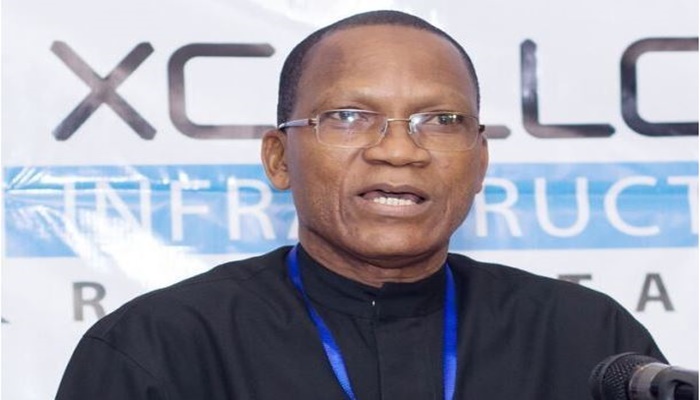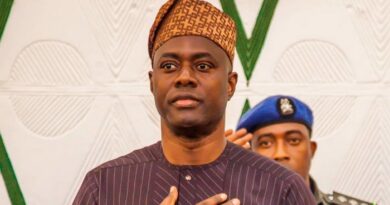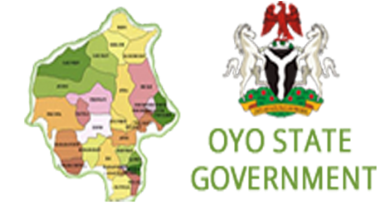Nigerians want $1bn Eurobond invested in infrastructure
- Express fear over mismanagement, repayment
- Foreign investors’ confidence high
Following the raising of $1 billion by the Federal Government through Eurobond which was oversubscribed by close to 800 per cent, stakeholders have advised government to invest the bond in infrastructure to yield the necessary impact.
This is even as the stakeholders express concern over the potential use of the proceeds, warning against using the proceed to support recurrent expenditure, or supporting the Naira.
This is the third time that Nigeria will be raising funds at the Eurobond Market, in 2011; Nigeria defied cynics and proved wrong The Financial Times of London which had predicted that investors were not interested in the Nigeria Eurobond because of its bad ratings. The bond issue was 250 per cent over-subscribed.
Again in 2013, Nigeria comfortably raised $1 billion in its return to the Eurobond market. The issue was four times oversubscribed, with just over $4 billion in bids.
And on Thursday, The Federal Government successfully raised $1 billion in its return to the Eurobond market in what signifies global investors’ endorsement of the Federal Government’s economic recovery initiatives.
The issue was 750 per cent oversubscribed, underscoring how buoyant investor appetite for scarce frontier African paper, despite recent selloffs in emerging market assets. The global medium term note programme of $1,000,000,000 is due to mature in 2032.
According to Mazi Okechukwu Unegbu, the Managing Director/CEO, Maxifund Investment and Security and a former President of the Chartered Institute of Bankers of Nigeria the raised bonds should be invested on energy and infrastructure.
“First of all, let us congratulate Nigeria that this “our invested bond “is been oversubscribed by outsider (foreigners) by 800 percent, which is about 1 billion dollar, we have raised about $7. 8 billion which is very impressive, it means that there is a lot investor’s confidence in the Nigerian economy and there is a trust in the present government” he said.
On which area should the bond be invested in, Unegbu posited that if the bond is invested on Energy and infrastructure, it will positively affect the economy of the country.
“Though I did not see the package for the investment of the bond, but I would say areas they should invest it in are areas the bond will yield revenue based on government statistics.
They can look at infrastructure like road and energy, because if the energy situation in the country should improve, it will solve a lot of problem, all the problems we are talking about will just be solved, unemployment will reduce drastically.
So I think they should look at road, and energy which is very important, because if we have energy all these artisans will have way to employ and who they can train and the economy will start moving again, but if they put it into their pocket or steal it and did not see the value, we will remain in square one and we have to pay for it even from the taxes, which is disastrous” he said.
On the impact that the bond will have on the economy, Unegbu said it will lead to job creation. “First of all, it will bring about job creation if we put it into energy or infrastructure or building of roads, we can be able to repay the loan in no time. It is only hoped that the money does not end in private pockets
His position is corroborated by the Minister of Finance, Mrs Kemi Adeosun who has said that the Eurobond that was secured this week and the AfDB loan secured late 2016, would continue to be used to fund capital projects identified in the 2016 budget.
Similarly The Director General of Debt Management Office (DMO), Dr. Abraham Nwankwo, also admonished that “all borrowings should be used for capital projects.” This is in line with the plan of the Federal Government to make more funds available for capital investments.
“At the heart of the agenda is a commitment to invest in developing Nigeria’s infrastructure through a target 30 per cent annual budget commitment to capital expenditure. We are establishing the building blocks for long-term growth and making the hard decisions that must be made to reset our economy appropriately” he said
It would be recalled that the Federal Government, Thursday, successfully raised $1 billion in its return to the Eurobond market in what signifies global investors’ endorsement of the Federal Government’s economic recovery initiatives.
The issue was 750 per cent oversubscribed, underscoring buoyant investor appetite for scarce frontier African paper, despite recent selloffs in emerging market assets. The global medium term note programme of $1,000,000,000 is due to mature in 2032.
It was a day of international acknowledgement and endorsement of the Debt Management Office (DMO) continued strategy in a peculiar challenging local and global economic landscape.
The DMO defied all known predictions by international financial and capital market analysts to prove that Nigeria’s economy remains resilient and robust in the international capital market during the issuance of the nation’s first 15-year maturity $1 billion Eurobond.
Although there was initial scepticism around the potential uses of the bond proceed, given the fact that the public haven’t yet seen a comprehensive Economic recovery plan and precise use of the proceed, the over-subscription of the Nigerian Eurobond is very significant. It indicates unequivocally that knowledgeable international investors still consider Nigeria a good investment risk despite what the rating agencies have said.




